The economic crisis caused by the coronavirus pandemic poses a triple challenge for tax policy in the United States. Lawmakers are tasked with crafting a policy response that will accelerate the economic recovery, reduce the mounting deficit, and protect the most vulnerable.
To assist lawmakers in navigating the challenge, and to help the American public understand the tax changes being proposed, the Tax Foundation’s Center for Federal Tax Policy modeled how 70 potential changes to the tax code would affect the U.S. economy, distribution of the tax burden, and federal revenue.
In tax policy there is an ever-present trade-off among how much revenue a tax will raise, who bears the burden of a tax, and what impact a tax will have on economic growth. Armed with the information in our new book, Options for Reforming America’s Tax Code 2.0, policymakers can debate the relative merits and trade-offs of each option to improve the tax code in a post-pandemic world.
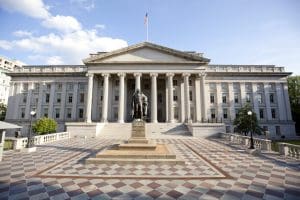
Treasury Minimum Tax Argument Relies on Narrow Interpretation of Current/Proposed Rules
As Congress prepares to rewrite some portion of the current international tax rules, it’s hoped that they are able to achieve a more principled approach and one that is not so subject to obfuscation and misinterpretation.
7 min read
H.R. 3 Would Reduce R&D Spending and Medical Innovation
Lawmakers are considering policy changes within the reconciliation bill that would reduce private R&D within the pharmaceutical industry and reduce the number of new drugs coming to market. Instead of hampering medical progress, policymakers should work to ensure that the tax code remains conducive to R&D spending and the resulting innovation.
5 min read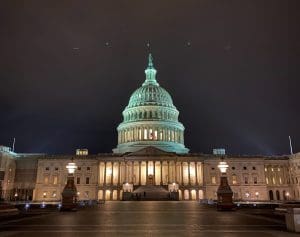
Reviewing Wyden’s Reconciliation Tax Policy Proposals
Congressional lawmakers are putting together a reconciliation bill to enact much of President Biden’s Build Back Better agenda. Many lawmakers including Senate Finance Committee Chair Ron Wyden (D-OR), however, want to make their own mark on the legislation.
5 min read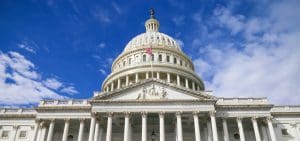
Wyden’s Financial Services Tax Proposals Would Put “Mark-to-Market” to the Test
Mark-to-market is not simple to implement, as it involves new administrative and compliance challenges for taxpayers. Mark-to-market levies tax on phantom income, requiring some taxpayers to engage in some degree of liquidation, ultimately suppressing incentives to save and invest. The limited tax revenues that could result from these proposals are not worth the risk.
5 min read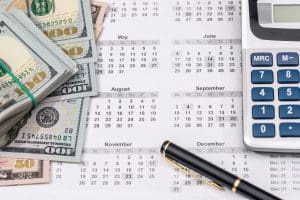
Temporary Policies Complicate the Child Tax Credit’s Future
Over the next ten years, the structure of the Child Tax Credit (CTC) is scheduled to change, complicating efforts to extend enhanced CTC benefits or reform the CTC for the long-term. Rather than take an all-or-nothing approach or kick the can down the road by relying on temporary expansions, lawmakers could consider alternative options that better target low-income households, retain work incentives, reduce the impact on federal revenue, and provide taxpayers with a stable, consistent tax code.
8 min read
GILTI of Neglecting Losses
As lawmakers are reviewing international tax rules and determining what to change and update, they should pay attention to the way GILTI interacts with profitable and loss-making companies.
5 min read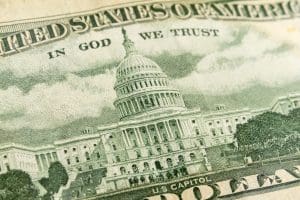
Lawmakers’ Tax Rate to Help Pay for Reconciliation is 1,900 Percent
While the excise tax penalty in H.R. 3 is referred to as a 95 percent tax rate, it actually amounts to a 1,900 percent tax rate because of how the proposal defines the tax base. In other words, under the H.R. 3 tax penalty, a drug that sells for $100 would incur a $1,900 tax.
3 min read
The DASH Act Isn’t the Best Way to Solve the Housing Crisis
To tackle problems of homelessness and housing costs, Senator Ron Wyden (D-OR) has released a major tax proposal, the Decent Affordable Safe Housing (DASH) For All Act. Several of Wyden’s proposals are also components of the Biden administration’s infrastructure agenda, with a large focus on tax credits designed to either incentivize new housing or directly reduce rent burdens.
5 min read
Don’t Add More Temporary Tax Policies in Budget Reconciliation
Temporary policy creates uncertainty for taxpayers and scheduling more expirations will add to the already-expiring provisions under the Tax Cuts and Jobs Act (TCJA) of 2017.
3 min read
5 Things to Consider in the Tax Gap Discussion
Increasing tax compliance is a major part of the Biden administration proposal to raise revenue for physical and social infrastructure. Reducing the tax gap—the difference between taxes owed and taxes paid—is a good way to raise revenue, but it doesn’t come without trade-offs, and it’s important to go about it in the right way.
3 min read